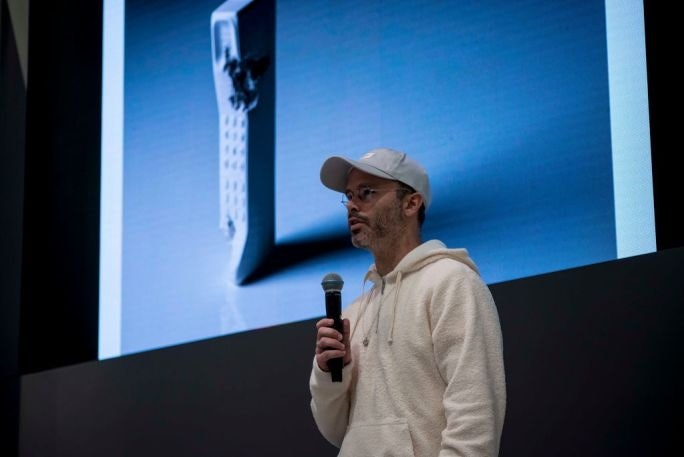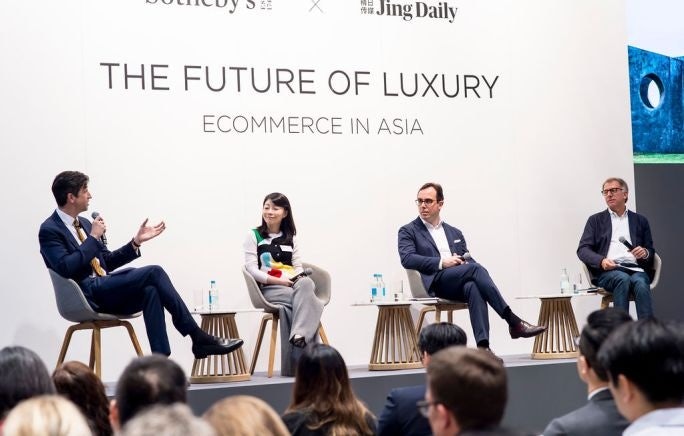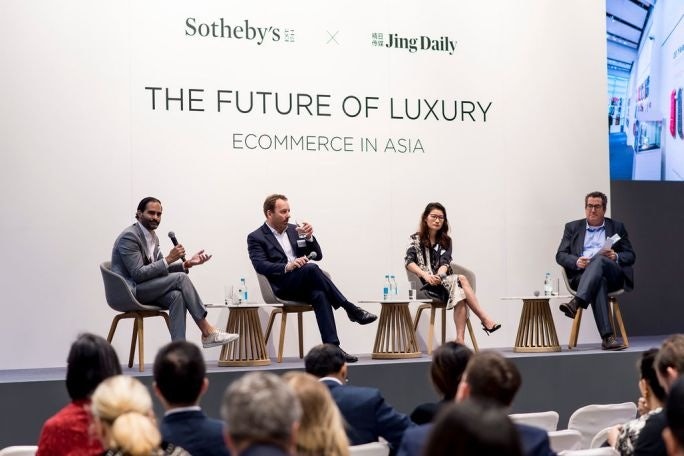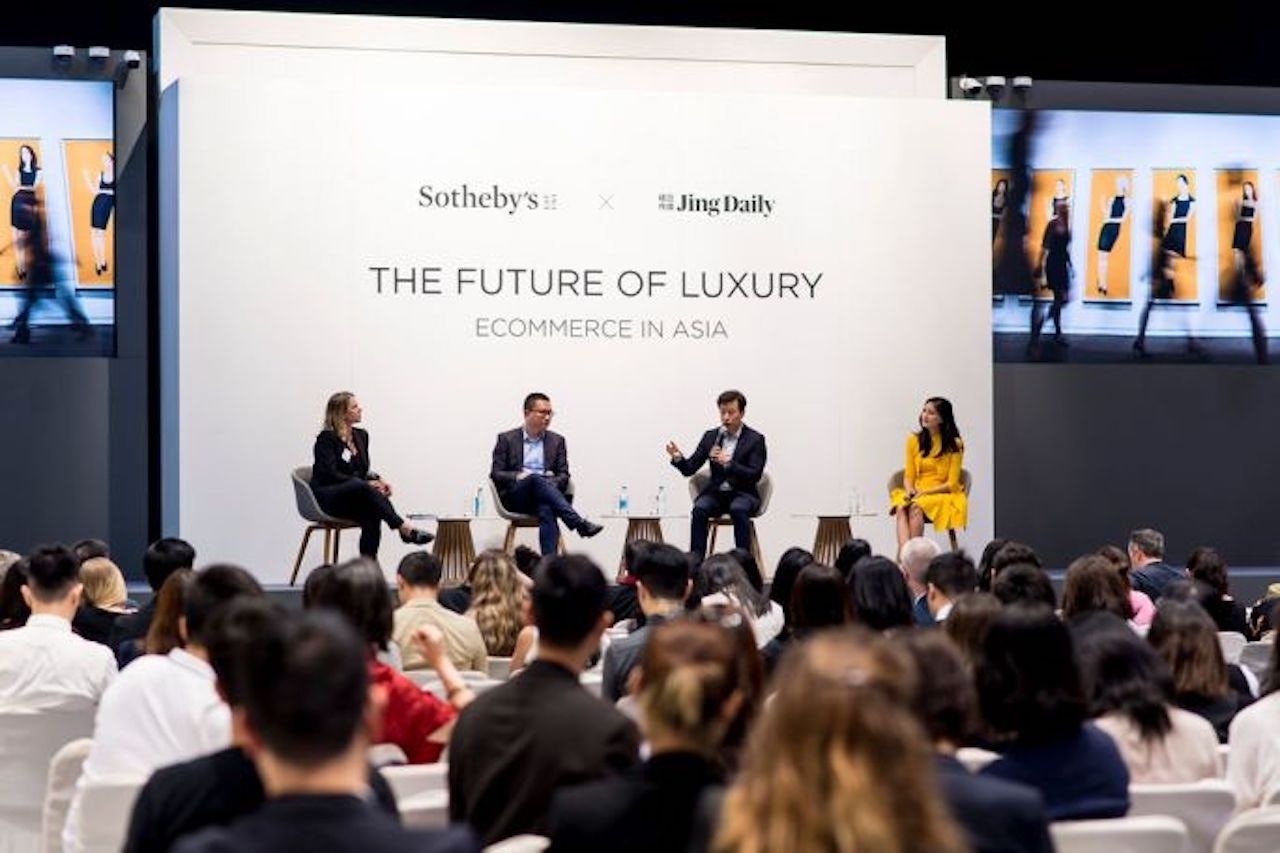The first Future of Luxury: Ecommerce in Asia conference, hosted in Hong Kong by Sotheby’s and Jing Daily, brought together industry thought leaders from around the globe to examine Asia’s soaring ecommerce market, identify trends and place a few bets on the future direction of the luxury sector.
Here are 10 key takeaways.
1#
“Luxury starts with a great product, but must also serve the consumer”#
– Josh Pullan, Deputy Managing Director, Global Jewelry & Watches, Sotheby’s.
Customers want both a beautiful online experience and to be taken to the product as quickly as possible. For Sotheby’s, online is now the preferred platform for the majority of bidding.

2#
“The journey of the viewer through space is paramount”#
– Daniel Arsham, artist, innovator and collaborator.
In his keynote speech, Arsham addressed the evolution of his art from painting through an exploration of architecture to sculpture and in video. Whatever the medium, Arsham’s art revolves around creating a viewer experience, a model that luxury brands could learn from.
3#
“Asia now equals luxury”#
– Kevin Ching, CEO, Sotheby’s Asia.
Now is the time to start a serious conversation about how the digital era could help luxury businesses thrive. One key statistic that surfaced during the course of the conference: 60 percent of the world’s luxury consumption comes from Chinese consumers, even if it doesn’t happen in China.
4#
“58 percent of Luxury consumers in China prefer ROPO: Research Online, Purchase Offline”#
– Kiki Fan, General Manager of Planning and Implementation, Tencent Holding.
This is one of several differences between Asian and Western consumers. Later in the program, Judy Liu, Managing Director of Farfetch China agreed, pointing out that Chinese consumers may learn about luxury goods online, but still want the emotional experience of touching a product before buying it.

5#
“Consumers today are looking for something unique ”#
– Achim Berg, Senior Partner, McKinsey.
This stands in contrast to the 1980s, when consumers who bought luxury goods did so in order to fit in.
6#
“Consumers are looking for real, meaningful experiences”#
– Arthur Cohen, CEO, LaPlaca Cohen.
There is a considerable overlap between cultural audiences and luxury consumers who want experiences injected with emotion. Of the many potential forms of cooperation between artists and luxury brands, the most attractive is one Cohen describes as a ‘true collaboration,’ something that happens when “the voice of the brand and the artist converge to create something.”
7#
“It’s all about the story” –#
Daniel Langer, CEO of Équité.
A question from the floor raised a fascinating limitation of technology – potential customers cannot smell perfumes online. In this case, storytelling becomes even more essential.

8#
“It is categorically untrue that older clients won’t embrace the web”#
– David Goodman, Executive Vice President, Digital & Marketing, Sotheby’s.
Another myth disproven by the data: only cheap goods will sell online. For Goodman, basing strategy on data that can be harvested online (rather than relying on anecdotal information) means that the company can do a much better job serving the needs of both consignors and buyers.
9#
“AI will be a game changer”#
– Daniel Langer, CEO of Équité.
AI or, more accurately, Advanced Data Querying, will allow companies to tap into the minds of consumers. Feedback on campaigns can be available in hours or days rather than months, and companies no longer need to be reliant on opinions or gut feelings to make decisions.
10#
“AI can help predict demand”#
– Ahmad Qamar, Director of Machine Learning, Sotheby’s.
Qamar, who previously worked on the Spotify recommendation algorithm, revealed Sotheby’s advertising, informed by AI, will be delivered far more accurately to potential consignors, encouraging them to sell desired goods at auction.
